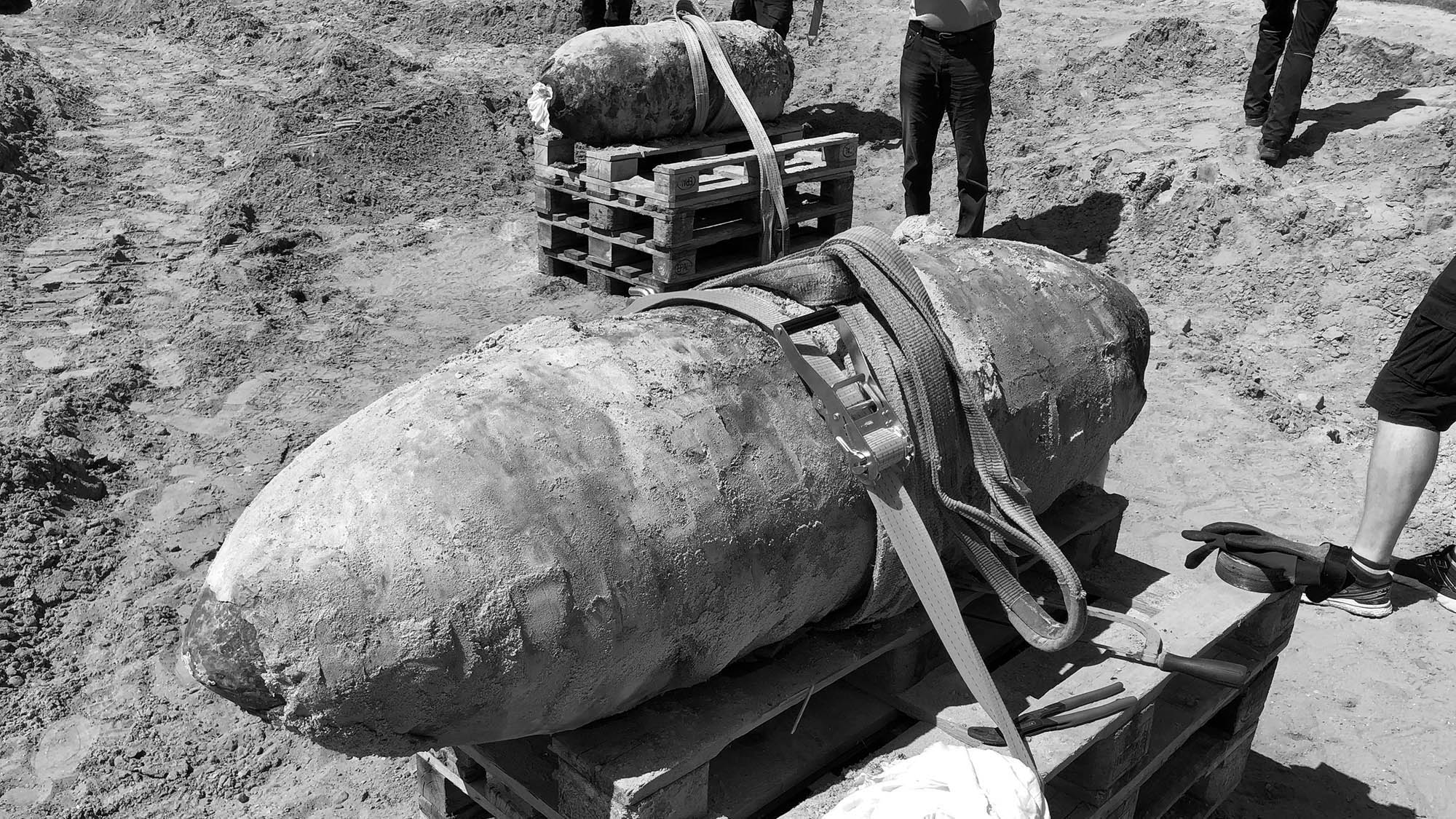Builders have found two British World War II bombs – one weighing a tonne – at a German port which bomb disposal workers later defused.
Construction workers digging at the southern harbour on the main island in the German archipelago of Heligoland made the two alarming discoveries on 6th July.
According to the police, two unexploded British aerial bombs from World War II were found – one weighing 500 kilogrammes (79 st) and the other weighing a tonne (157 st).
The explosive ordnance disposal services arrived on the 1-square-kilometre (0.4-sq-mi) island the following morning.
The surrounding area was cleared before the complicated task could begin. The tail of the larger bomb had to be sawed off by hand before both bombs were defused without any problems.
Two and a half hours after the work began, the harbour was able to reopen.
The Nazis used the island as a sea fortress during the war, and it is believed the bombs were among 7,000 dropped by 1,000 Allied aircraft during raids on 18th and 19th April 1945.
The German military suffered heavy casualties during the raids, and, a few weeks later, the war would be over.
The island was completely evacuated following the raids, and the British armed forces then used the archipelago as a bombing range until 1952 when it returned to German control.
Its former inhabitants then returned and the archipelago was said to have a population of 1,307 North-Frisian-speaking ethnic Frisians at the end of last year.
Bombs from World War II are often found on the archipelago during construction works.
The archipelago was under British administration from 1807 to 1890 when it was ceded to Germany in return for Zanzibar, now an autonomous region of Tanzania.
It was in Germany’s interest at the time to control the archipelago, due to its proximity to the militarily-important Kiel Canal.
It was during a visit to the archipelago that August Heinrich Hoffmann wrote the lyrics to ‘Deutschlandlied’, which became the German national anthem.
To find out more about the author, editor or agency that supplied this story – please click below.
Story By: William McGee, Sub-Editor: James King, Agency: Newsflash
The Ananova page is created by and dedicated to professional, independent freelance journalists. It is a place for us to showcase our work. When our news is sold to our media partners, we will include the link here.




